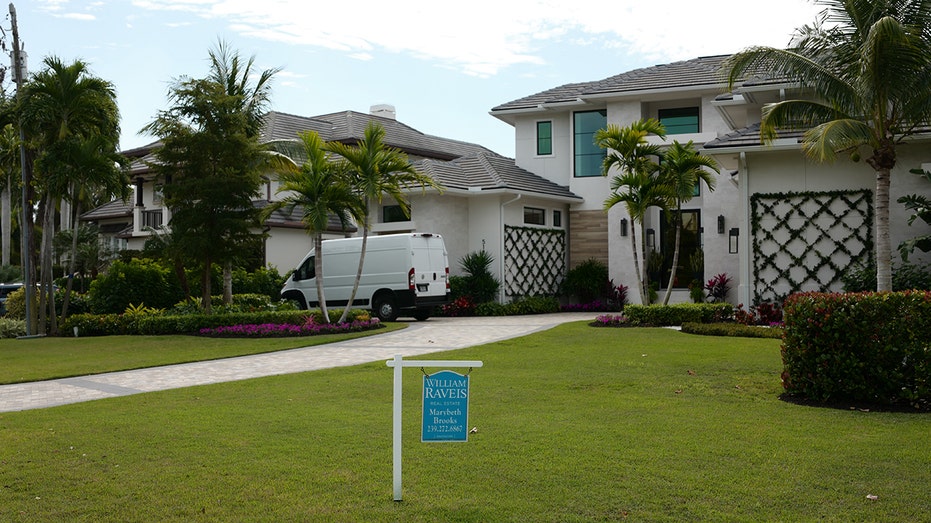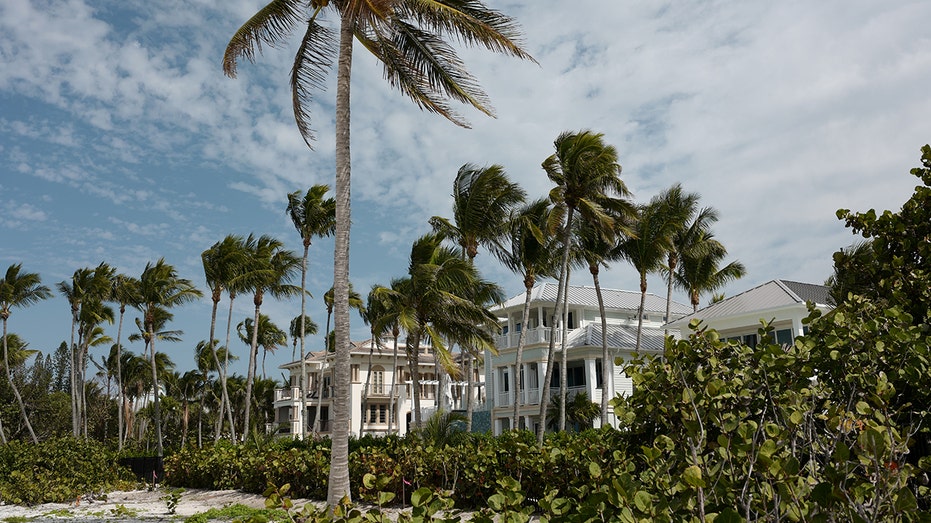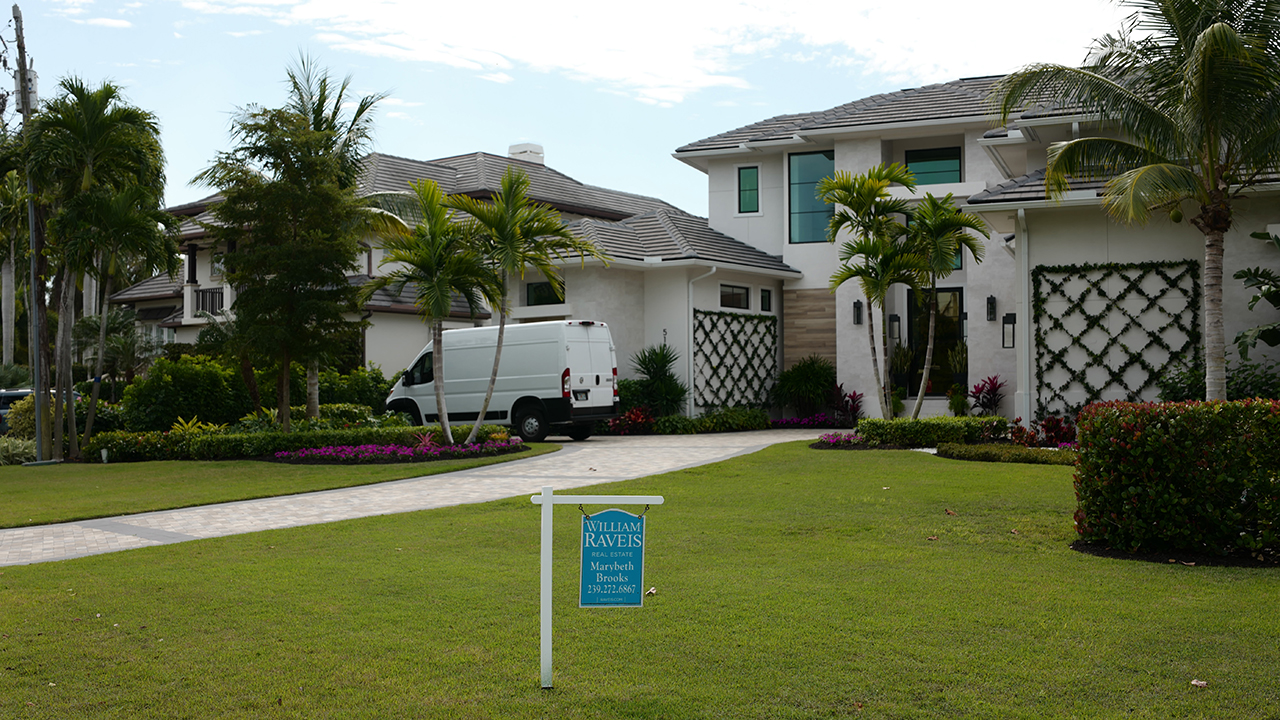These 15 housing markets have the highest correction risks
Florida housing market faces price-correction risk in 13 cities
Housing needs interest rates to hit at least 6% to see a recovery, analyst says
'Mansion Global' host Katrina Campins discusses the state of the housing market on 'Making Money.'
There has been a relentless climb in home prices in the U.S. over the past three years, but a growing number of markets face the risk of a steep price correction.
A new report published by Parcl Labs, a real-estate data and analytics firm, shows there are 15 housing markets in the U.S. that are "at risk" of a home-price correction in the coming fall and winter months.
"While there's no guarantee that these regional markets will experience a material home price correction, they are showing signs of softening," the report said. "At the very least, buyers in these markets have more leverage than they did a few years ago."
THE US HOUSING MARKET IS 'STUCK,' AND MIGHT REMAIN THAT WAY UNTIL 2026

A house for sale in the Aqualane Shores neighborhood of Naples, Florida on Tuesday, Feb. 13, 2024. (Photographer: Lisette Morales McCabe/Bloomberg via Getty Images / Getty Images)
These are the 15 markets with the highest correction risk, according to Parcl Labs.
- Crestview-Fort Walton Beach-Destin, Florida
- Daphne-Fairhope-Foley, Alabama
- Deltona-Daytona Beach-Ormond Beach, Florida
- Gainesville, Florida
- Homosassa Springs, Florida
- Lakeland-Winter Haven, Florida
- Miami-Fort Lauderdale-Pompano Beach, Florida
- Myrtle Beach-Conway-North Myrtle Beach, South Carolina
- Naples-Marco Island, Florida
- Ocala, Florida
- Orlando-Kissimmee-Sanford, Florida
- Palm Bay-Melbourne-Titusville, Florida
- Port St. Lucie, Florida
- Sebastian-Vero Beach, Florida
- Tampa-St. Petersburg-Clearwater, Florida
The most notable part of the list is that 13 of the 15 "at risk" housing markets are all located in Florida.
MORTGAGE CALCULATOR: SEE HOW MUCH HIGHER RATES COULD COST YOU
Active housing inventory in Florida has been rising at an "accelerated" pace over the past year. Some of that increase is due to Hurricane Ian, which made landfall on Florida's Gulf Coast in September 2022 and helped to fuel a supply crunch in housing, which was eventually offset by new listings.

Waterfront homes near Naples Pier in Naples, Florida on Tuesday, Feb. 13, 2024. (Photographer: Lisette Morales McCabe/Bloomberg via Getty Images / Getty Images)
Florida is also battling a spike in home insurance premiums, which has further exacerbated affordability concerns. Researchers have blamed skyrocketing insurance prices on several issues, including weather disasters, rising re-insurance rates and steep home repairs as inflation pushes the cost of building materials higher. On top of that, a growing number of insurance companies in the Sunshine State are either leaving or raising their rates.
Finally, a new state law passed after the Surfside Condo collapse in 2021 has put "downward pressure" on many older condos along the Florida coastline. The law requires inspections of all condominiums and cooperative buildings that are three stories or higher. If there are any issues with the structure, a structural integrity reserve study must be completed.
HOUSING AFFORDABILITY IS AT THE LOWEST LEVEL SINCE 2007
"This emerging weakness in prices, particularly in high-performing markets like Tampa and Miami, could signal the early stages of a market correction in the region," said Jason Lewris, co-founder of Parcl Labs.
There are a number of driving forces behind the nationwide affordability crisis.
Years of underbuilding fueled a shortage of homes in the country, a problem that was later exacerbated by the rapid rise in mortgage rates and expensive construction materials.
GET FOX BUSINESS ON THE GO BY CLICKING HERE
Higher mortgage rates over the past three years have created a "golden handcuff" effect in the housing market. Sellers who locked in a record-low mortgage rate of 3% or less during the pandemic began have been reluctant to sell, limiting supply further and leaving few options for eager would-be buyers.
Economists predict that mortgage rates will remain elevated for most of 2024 and that they will only begin to fall once the Federal Reserve starts cutting rates. Even then, rates are unlikely to return to the lows seen during the pandemic.





















